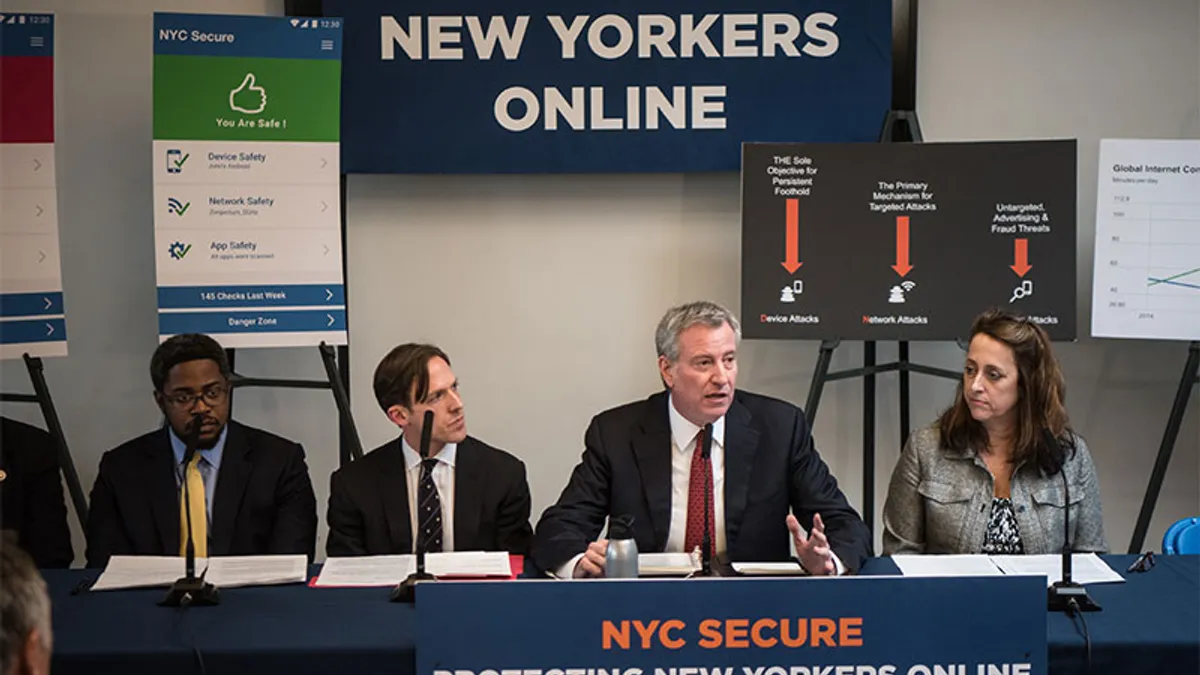Dive Brief:
- New York City Mayor Bill de Blasio announced last week the launch of NYC Secure, the city's first-ever cybersecurity initiative, aimed to "defend New Yorkers from malicious cyber activity on mobile devices, across public Wi-Fi networks, and beyond," according to a statement. NYC Cyber Command will oversee the initiative.
- As part of the program, the city will launch a free smartphone protection app — available to all New Yorkers in summer of 2018 — that will send warnings to users when malicious activity is detected on the device, as well as recommendations for self-protection, such as disconnecting from a dangerous Wi-Fi network.
- The city will also add technology to its public Wi-Fi networks to boost security by protecting users from downloading ransomware or accessing phishing websites. These security measures will be added by the end of the year, and will also be deployed across the city's LinkNYC network.
Dive Insight:
The city's focus on mobile devices is driven by the increased use of smartphones and Wi-Fi enabled applications across the nation. The city reports that, in early 2017, mobile phones accounted for 50% of web traffic and by 2020, 30% of all cyberattacks will be mobile-based, according to Gartner. "The amount of personal information available and easily stolen from our smart phones — which we are all entirely dependent on — is staggering and requires robust security measures," said New York State Senator Brad Hoylman in a statement commending Mayor de Blasio on the effort.
Holyman was joined by officials from various levels of government, as well as private sector companies such as McAfee, JPMorgan Chase, Palo Alto Networks, CrowdStrike and F-Secure, to praise de Blasio's actions on information security standards.
This announcement comes just days after Atlanta fell victim to a ransomware attack that caused outages across a number of city departments, and Baltimore fell victim to a hack that shut down the city's 911 dispatch system. Both attacks raised overall concerns about the vulnerabilities of cities' operational and emergency systems, and brought into question some cities' current measures to combat cyberattacks. By being proactive on cybersecurity, New York City — which is often the target of attacks, both physical and cyber — is demonstrating the various ways it can increase resident protection.
"It’s our job in government to make sure that people are safe online. It’s a new reality,” de Blasio told Reuters. And while many cities have not yet faced this reality head-on, it is crucial that cybersecurity becomes more of a priority in all local governments for the sake of public trust, data protection and operational efficiency.











